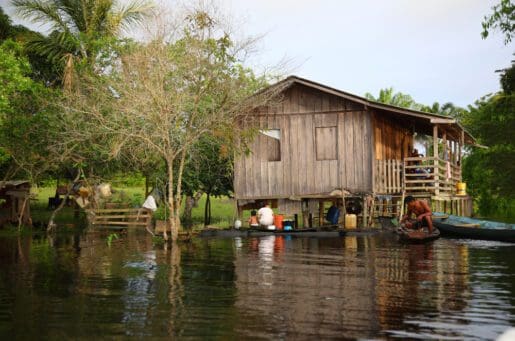Bioethics Forum Essay
To Reduce Maternal Health Disparities, Expand Medicaid
Black women are three times as likely to die from preventable pregnancy-related complications as white women in the United States. There are many reasons for this, but one of them is that Black women have lower rates of health insurance. Without insurance, they cannot afford the pre-pregnancy and prenatal care they need to reduce their maternal mortality rate. A fundamental way to address this problem is to expand Medicaid.
Medicaid provides coverage to many people who are unemployed or otherwise unable to access private insurance. One-third of women of reproductive age who fall into this coverage gap are Black. I urge bioethicists to advocate for state governments to expand Medicaid and its duration to preconception and postpartum periods.
Under the Affordable Care Act’s Medicaid expansion, Medicaid covers adults with incomes up to 138% of the poverty line. It increases the number of women who qualify for Medicaid before they become pregnant. However, 10 states, mainly in the South, have not adopted the Medicaid expansion. In these states, women living in poverty qualify for Medicaid only once they become pregnant.
Medicaid expansion is key to improving Black maternal health and lowering maternal mortality. In a recent study, it was associated with a 22% increase in preconception care and a 10% increase in daily folic acid intake, which is recommended before pregnancy. Maternal mortality rates are lower in states that have expanded Medicaid, with the most significant difference among Black mothers. These findings suggests that expansion could decrease racial disparities in maternal mortality rates for Black women.
Medicaid should also cover the postpartum period to help prevent maternal mortality. Medicaid coverage for pregnancy is only required for two months after delivery. But about a third of preventable deaths occur between seven and 365 days postpartum. Many of these deaths could be prevented if states adopt the American Rescue Plan’s option to extend Medicaid coverage for up to a year postpartum. In a recent article, researchers called Medicaid extension during the postpartum period “a key strategy in the struggle to reduce the unacceptable maternal mortality rate across all racial and ethnic groups in the U.S.”
Infants also stand to benefit. While infants are Medicaid-eligible until age 1, their parents often lose coverage because their income eligibility increases with each dependent child. Medicaid expansion would enable a lower-income woman to retain coverage and access health care while caring for her newborn.
The Biden-Harris administration’s “Improving Maternal Health in America” initiative to alleviate maternal health disparities calls on Congress to expand Medicaid coverage, fund the education of Black women on preventing pregnancy complications, and continue providing access to insurance coverage. In addition, states should increase access to midwives and doulas through Medicaid, including during the prenatal and postpartum periods. With midwives and doulas from diverse backgrounds, Black women will have access to health care providers and treatments they are comfortable with to enhance their pregnancy experience and have healthier outcomes.
Bioethicists and policymakers in state governments should advocate for expanded Medicaid coverage before, during, and after pregnancy. Medicaid expansion will help to reduce health risks that worsen pregnancy outcomes disproportionately for Black women, upholding the ethical principles of beneficence and nonmaleficence. The stress levels of Black women experiencing poverty will also be reduced through access to health coverage and will work towards closing the maternal mortality disparity gap.
Mahika Ahluwalia, MBE, is a JD candidate at the University of Western Ontario, Faculty of Law in Canada. She received a Master of Bioethics from the University of Pennsylvania. @ahluwm92













Thank you for highlighting our shared concerns for one of the foundations of all public and community health:
the care of pregnant persons – before and through pregnancy and delivery – and care of infants, born and unborn.
I live in a state – the Commonwealth of Virginia – that expanded Medicaid through bipartisan – Democratic and Republican – advocacy. But this has not been the ‘magic wand’ that many Democrats and others claimed. Many of our Virginia communities – and particularly RURAL communities – have persistent, pervasive health provider shortages, and are ‘maternity care deserts’. Why do I call out Democrats? Because in Virginia – and across much of the United States – Democrats almost utterly abandoned rural constituencies. When I have asked many Virginia Democrats about their commitment to improving rural maternity and infant health care access, quality and outcomes they responded: ‘Oh, we already expanded Medicare’. Thank you, I respond, and continue ‘… but you did NOT show any commitment to ensuring EQUITABLE pregnancy, delivery, post-partum, and infant care access, quality and outcomes across rural Virginia’.
A common response is ‘… but they don’t vote for us’.
Democrats’ abandonment of rural communities include that when a Republican Senator proposed a bill to enshrine educational EQUITY in the Virginia Constitution – one of the essential social determinants of health for rural communities – Democratic leadership and legislators sunk that ship. EQUITY for rural communities wasn’t their concern. Of course, this attitude is morally wrong. But a growing and strengthening urban-rural divide has been used to justify much that is morally wrong.
A colleague in the University of Virginia School of Law (I am retired from the UVA School of Medicine) recently published a groundbreaking critique and proposal. A link and the abstract is below.
Perhaps Hastings Center and its readers will review this piece, understand the importance of understanding the rural-urban divide that instantiates desperate health and other disparities, inequities and injustices, and comment. Perhaps Hastings Center will undertake further discussion of these issues.
Thank you,
https://scholarship.richmond.edu/lawreview/vol57/iss3/5/
Those Who Need the Most, Get the Least: The Challenge of, and Opportunity for Helping Rural Virginia:
Rural America, as has been well documented, faces many challenges. Businesses and people are migrating to more urban and suburban regions. The extraction and agricultural economies that once helped them thrive—mining, tobacco, textiles—are dying. And, as we discuss below, residents of rural communities tend to be older, poorer, less credentialed in terms of their education, less healthy, and declining in population.
On a regular basis, political leaders on both sides of the aisle, and on national and state levels, make commitments to rural areas to help improve the quality of life for residents, to listen, and to help. Even with all the attention, many challenges remain, leading policy makers to ask: How can we help our rural communities?
In this Article we try to answer that question by looking specifically at the Commonwealth of Virginia, a state whose rural residents suffer disproportionately worse life outcomes than their counterparts in other parts of the state. While it is true, as we will show, that state leaders have paid attention to these challenges, it is equally true that many of the challenges facing rural Virginians persist.